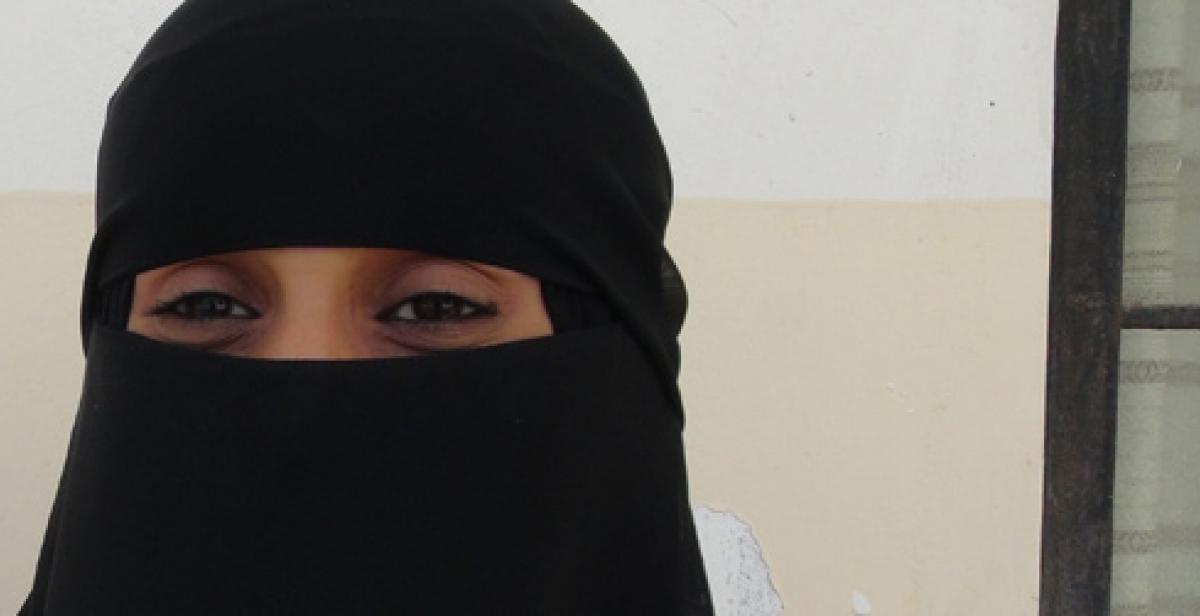As Yemenis go to the polls (on Tuesday 21 February 2012), many are optimistic that change is coming and there's no going back.
Shuffling chairs or real change?
Vice President Abed Rabbo Mansour Hadi, the only candidate in the running, is expected to replace President Ali Abdullah Saleh after over 30 years - in Yemen that's half of an average lifetime.
Unrest in the past year leading up to today's election has compounded security and poverty issues already facing the Arab world's poorest country. A transition to improved democracy is unlikely to be smooth, but will it be worth it?
"We will do it all again if we are excluded again," says Rahmah Abdul-Raheem Radman Al-Kadasi, 26, a demonstrator and member of Yemen's Youth Movement. Rahmah is collaborating with women, youth, disabled people, people living with HIV and other civil society organisations and NGOs working with marginalised groups to ensure everyone gets a say in shaping Yemen's future.
Breaking the silence
"Now our voice is better heard," she says. "Our views and thoughts are more clearly expressed and understood locally and also internationally."
For Rahmah, change offers an opportunity to overcome the corruption and security issues that have led to Yemen being known as a failed state. She believes that better citizen participation in decision-making and the formation of a new constitution will help to solve problems such as high unemployment, poor health care and education, social injustice and poverty.
But not everyone is so optimistic about the future. Obaid Ahmed, 56, is General Secretary for The Handicapped Union in Hodeidah.
A history of frustration
"I am over 50 years old and in all my life I haven't seen any significant action from the government to improve ordinary people's lives. I am frustrated. The on-going so-called change, in my opinion, is a shuffling around of chairs," says Obaid, who has set his hopes somewhat higher. "I pray for complete regime change with full community participation in political life so that disabled people and other marginalised groups can gain their rights based on laws and legislation."
But, despite differences in what they feel they can realistically expect, both Rahmah and Obaid believe that there's a role for the international community to play if their hopes are to become reality in the future.
"Previously, international agencies threw a stone into stagnant water. There was no political will. Now, I think the time is ripe for international support," says Obaid. "I hope we can become like other countries where disabled people are represented in decision-making because they have international support".
A critical turning point?
Rahmah believes that: "In this transition period, the support of the international community is very necessary; quick interventions like emergency relief for the most vulnerable groups in conflict areas, food security programmes, technical support for government agencies and civil society, training on peace-keeping and security. All this will help the government to provide basic services like electricity and water and improve people's daily lives."
Participation is crucial to overcoming the challenges facing ordinary Yemenis. Progressio has been working in Yemen since 1974, with marginalised communities including women, youth, people with disabilities, women in prisons and people living with HIV to make sure that their voices are heard.
It's the taking part that counts
"Intensive involvement will help us think positively towards our future," says Abather Al-Kirshy, 28, the Director of Grassroots Anti-Poverty for Social Empowerment, a Progressio partner organisation.
Abeer Al-Absi, Progressio's Country Representative, describes the atmosphere in Yemen as one of anticipation and excitement. "This is an opportunity for Yemen to really take development and poverty seriously and overcome the challenges we currently face," she says.
"Most importantly people are thirsty for change and ready to take part in making it happen. Women and young people already have a much stronger voice than before," says Abeer.
A sea change?
With the right support from the international community and providing the new government has a clear vision for development, could the tides be turning for Yemen's most marginalised people?
Photo: Rahmah Abdul-Raheem Al Kadasi, member of the Youth Movement in Yemen (Saeed Saif/Progressio)




Comments
People thronged into change
People thronged into change square for their brighter democratic future, get rid of corrupted people and corruption in the country, get rid of poverty, unemployment, and seeking better life. First step towards achieving this, ballot against the bullet done. People will seek immediate fulfillment of their grievances, in the transition period. At this moment injection of resources (man money material) through Government's right vision, policy and plan mobilizing through international community, donors, bilateral organization, INGOs in collaboration with local partners, NGOs, CBOs will play a great role. Youths, Women, Marginalized groups being a part and parcel of all process will have good and sustainable result. In other hand, international support for reforms in various sectors, eg governance, decentralization, administration, human rights, considering the voices from the change square for the ultimate development of the country will also be important. In this context the headlines "International support is crucial for Yemeni people" and the content is very much relevant and appreciated.
It really is important to
It really is important to create real change and take the initiative to enact that change ourselves. There is only so much that governments can do and with the right education people everywhere can live better lives.
There is so much happening in Yemen and most feel that it is up to the government to make an explanation in order to make their lives better when they should be able to do it for themselves.